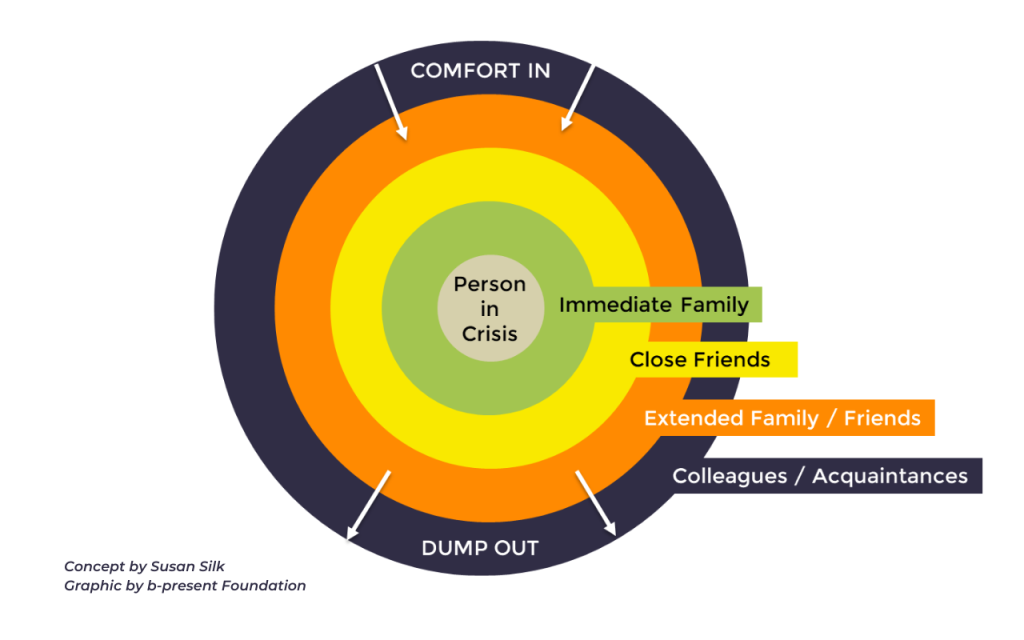
Creating Healthy Boundaries: A Guide for Young Adults with Cancer
Living with cancer as a young adult presents unique challenges, not only in terms of health but also in navigating the complexities of relationships and personal boundaries. At b-present, we understand the importance of establishing and maintaining healthy boundaries for emotional, physical, and psychological well-being. This guide offers practical advice, examples, and language suggestions to empower young adults with cancer in this critical aspect of their lives.
Understanding the Importance of Healthy Boundaries
Boundaries are the personal limits we set with other people, which indicate what we find acceptable and unacceptable in their behavior toward us. For young adults with cancer, setting boundaries is crucial for managing energy levels, emotional health, and the overall quality of life. It’s a way to communicate your needs, limits, and preferences clearly and respectfully, ensuring that your relationships support your well-being.
Steps to Setting Healthy Boundaries
Identify Your Boundaries: Reflect on your needs regarding physical, emotional, mental, and social aspects. What makes you comfortable or uncomfortable? Your needs are valid, and recognizing them is the first step toward self-care.
Choose the Right Time and Place: Have these conversations when you and the person involved are calm, and choose a private setting for discussing sensitive matters.
Use Clear and Direct Language: Be specific about your needs. For example, say, “I need to rest by 9 PM, so I can’t have long phone calls in the evening.”
Express Your Feelings and Needs: Use “I” statements to convey your feelings without blaming others. For instance, “I feel overwhelmed with too many visitors and need more quiet time.”
Be Assertive but Respectful: Stand firm on your boundaries while maintaining respect for the other person’s feelings.
Listen and Engage: Be ready to listen to any concerns the other person might have and engage in a constructive dialogue.
Offer Alternatives: When possible, suggest other ways to meet in the middle, such as video calls instead of in-person visits.
Reaffirm Your Boundaries: Don’t hesitate to restate your boundaries if they are overlooked or misunderstood.
Prepare for Pushback: Some people might resist your boundaries. Stay calm and reiterate your needs respectfully.
Practice Self-Care: Recognize that setting boundaries is a form of self-respect. Seek support if you find it challenging to maintain these boundaries.
Examples of Healthy Boundaries
- Physical Boundaries: “I need rest and might not engage in long outings. I appreciate your invitation, but I must prioritize my health.”
- Emotional Boundaries: “I’m not comfortable discussing my medical details right now.”
- Social Boundaries: “I need to limit my social activities for my well-being. Thank you for understanding.”
- Informational Boundaries: “I prefer to share updates about my health on my terms. Please respect my privacy.”

Using the Ring Theory in Boundary Setting
The Ring Theory is a helpful model for understanding how to support and seek support effectively. Imagine concentric circles with the person with cancer at the center. Each ring represents different levels of closeness (family, close friends, acquaintances).
The rule? Comfort in, dump out. Offer support to those in inner circles and seek support from those in outer circles. When someone from an outer ring offers unsolicited advice or asks invasive questions, gently remind them of your boundaries.
Example: “I appreciate your concern, but I’m focusing on advice from my medical team and close family.”
This model can help manage interactions, especially when navigating unsolicited advice or questions.
Language for Enforcing Boundaries
A helpful structure is: “I value [this], so I need [that], and I will honor that by [action].”
- Assertive Yet Kind: “I value your support, but I need to manage this in my own way.”
- Setting Limits: “I’m not up for a visit today, but let’s text or have a call instead.”
- Redirecting Conversations: “Let’s talk about something other than my illness. How about [another topic]?”
- Requesting Privacy: “I’m keeping some aspects of my treatment private. Let’s respect that boundary.”
Tips for Maintaining Boundaries
- Consistency is Key: Regularly reaffirm your boundaries.
- Self-Care: Prioritize your needs without guilt.
- Seek Support: Consider talking to a therapist or joining support groups.
- Be Clear: Use straightforward language to express your boundaries.
- Practice Self-Compassion: Remember, prioritizing your well-being is necessary and valid.
Boundaries are essential for everyone but are particularly crucial for young adults navigating cancer. By setting and maintaining healthy boundaries, you can foster relationships that support your healing and well-being. Remember, it’s okay to prioritize your needs, and with practice, communicating your boundaries will become easier. b-present is here to support you every step of the way!
Learn more about supporting a friend:
- Learn how to b-there for your friend with cancer
- Download the Supporter Roadmap
- Follow us on Instagram
- Learn more about the b-present Foundation
